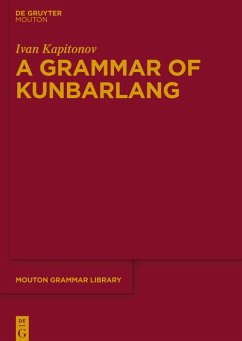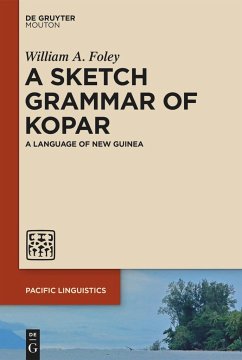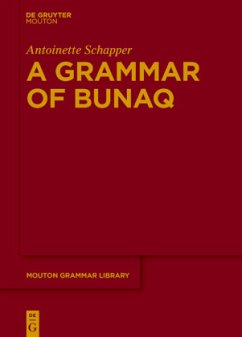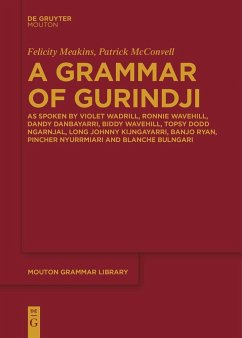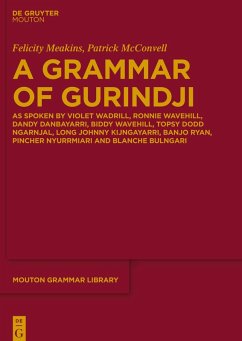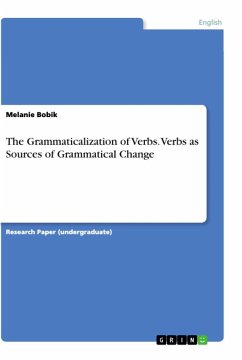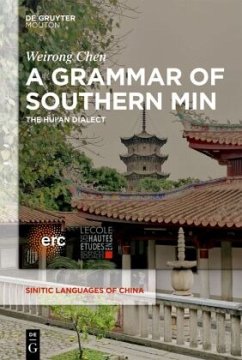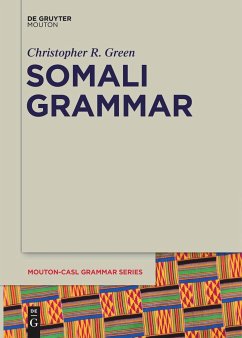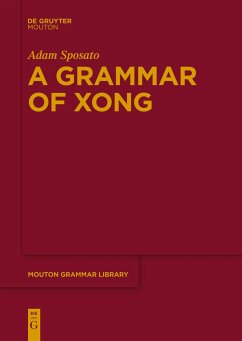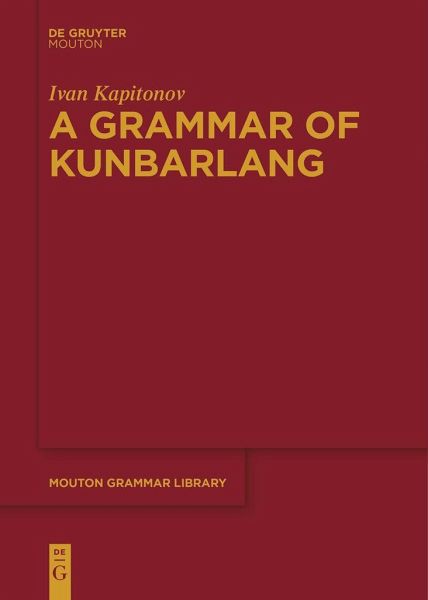
A Grammar of Kunbarlang
Versandkostenfrei!
Versandfertig in 6-10 Tagen
19,99 €
inkl. MwSt.
Weitere Ausgaben:

PAYBACK Punkte
10 °P sammeln!
This is a comprehensive linguistic description of Kunbarlang (Gunbalang), a highly endangered polysynthetic language of northern Australia. Kunbarlang belongs to the non-Pama-Nyungan Gunwinyguan language family and is currently spoken by nearly 40 people. This work draws on elicitations and analysis of narratives from the author's original field work (2015--2018), as well as those from previous recordings.The main areas covered are the sound system, morphology, syntax, and aspects of lexical and constructional semantics. Dictated by the polysynthetic structure of the language and the patterns ...
This is a comprehensive linguistic description of Kunbarlang (Gunbalang), a highly endangered polysynthetic language of northern Australia. Kunbarlang belongs to the non-Pama-Nyungan Gunwinyguan language family and is currently spoken by nearly 40 people. This work draws on elicitations and analysis of narratives from the author's original field work (2015--2018), as well as those from previous recordings.
The main areas covered are the sound system, morphology, syntax, and aspects of lexical and constructional semantics. Dictated by the polysynthetic structure of the language and the patterns of its use, the principal focus of the work is the analysis of the verbal complex and the interaction between the verb and other constituents of the clause. The analysis strike a balance between taking into consideration the areal and genetic context, being informed by linguistic typology and theory, yet at the same time remaining data-driven and theory-neutral in the way generalisations are stated. Against the Australian and a broader cross-linguistic background, Kunbarlang possesses remarkable features at all levels of its organisation.
The main areas covered are the sound system, morphology, syntax, and aspects of lexical and constructional semantics. Dictated by the polysynthetic structure of the language and the patterns of its use, the principal focus of the work is the analysis of the verbal complex and the interaction between the verb and other constituents of the clause. The analysis strike a balance between taking into consideration the areal and genetic context, being informed by linguistic typology and theory, yet at the same time remaining data-driven and theory-neutral in the way generalisations are stated. Against the Australian and a broader cross-linguistic background, Kunbarlang possesses remarkable features at all levels of its organisation.





